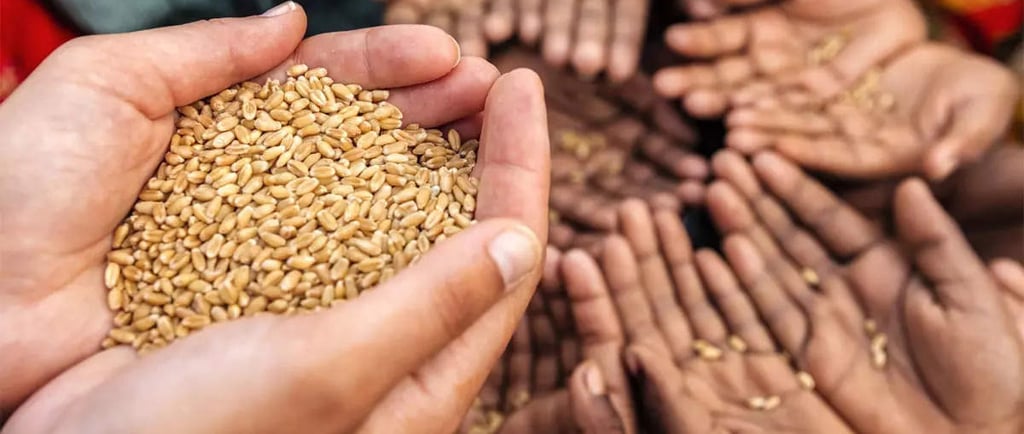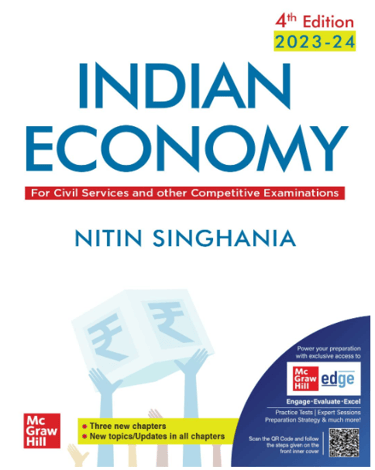Food Security & Socio-Economic Development Insights
SOCIO-ECONOMIC DEVELOPMENT


Food is not only essential for the survival of the individual but also very important for the overall development of the society and the country. Adequate and nutritious food leads to full physical and intellectual development of a person. The hard work of such healthy individuals increases the efficiency of the economy and promotes the development of the country.
Food Security
Food security is the condition and time when all the people of the country have access to sufficient, easy, affordable and nutritious food.
The concept of food security is very important for the social and economic development of any country. This is often discussed and debated in the political sphere as well. In a democratic country like ours, food security is an important tool to measure the performance of the government. The government is often criticized for rising food prices and rising inflation.
Food security is a broad concept. This includes the following –
1. Food Availability
This includes how much and how easily food is available to the people of the country.
This criterion is related to food production. That is, if enough food grains are produced in the country, the chances of people getting it as per their requirement increases.
Farmers play a major role in providing food. After all, it is these food grains grown which reach the people. This is why the government makes special schemes for the farmer, such as Pradhan Mantri Kisan Samman Nidhi (PM-KISAN), government subsidy on agricultural inputs, etc.
2. Accessibility
This means how easily food can be made available to people or reach them.
In this criterion, the role of the government becomes very important. In developing countries like ours, food distribution is largely in the hands of the government. The government purchases large quantities of food grains from farmers, which are then distributed to the people of the country (eg through rations or government cheap grain stores).
How convenient it is for people to reach government or private food ration shops, the country's infrastructure like roads, waterways, railways, etc. How much they have developed becomes important in this matter.
It is often seen in our country that a large amount of food grains are produced in one part of the country but due to lack of adequate storage space, infrastructure (eg godown or warehouse) it gets spoiled. On the other hand, as food grains do not reach the people in some areas, problems like hunger and malnutrition arise.
Due to social system and reasons, such as segregation of deprived sections of society, poverty and secondary position of women in family and society, this social group cannot access food.
3. Affordability
If the price of food grains is too high, the economically backward sections of the society cannot afford it, thereby depriving them of those food grains (eg, in our country, many people cannot consume the required amount of fruits due to high prices of fruits).
Food Inflation exacerbates this problem. Rising prices of food grains pose a problem of livelihood for the common man. This increases the scale and severity of hunger and malnutrition and threatens food security.
Unethical and illegal activities like hoarding and black market of food grains increase prices. Therefore, the Essential Commodities Act, 1955 (Essential Commodities Act) has been made in our country.
4. Assimilation
Sometimes food is available, easily accessible and affordable, but some people find it difficult to digest it and get enough nutrition from it. There can be many reasons for this, such as an illness related to the esophagus or digestive system, or improper cooking methods (eg, washing vegetables with water after cutting them).
As far as India's food security is concerned, today we are self-sufficient in food production. India ranks second in the world in wheat, rice, sugarcane, groundnut (according to FAO report). The total food production of our country in 2021-22 is 315.7 million tonnes, which is increasing. Still we cannot call ourselves food safe. Our food security is threatened by many things, such as –
- Monsoon dependent agriculture
- Rising cost of agricultural inputs
- New Diseases and Diseases of Crops
- Unsatisfactory agricultural research
- Problems of marginal and small farmers
- Backwardness in food processing
By overcoming these we can strengthen our food security. This will pave the way for comprehensive development of the country.
Questions for practice:
What are the salient features of the National Food Security Act, 2013? How has the Food Security Bill helped in eliminating hunger and malnutrition in India? (UPSC-2021; 250 Words, 15 Marks)
राष्ट्रीय खाद्य सुरक्षा अधिनियम, 2013 की मुख्य विशेषताएं क्या हैं? खाद्य सुरक्षा विधेयक ने भारत में भूख और कुपोषण को दूर करने में किस प्रकार मदद की है?



